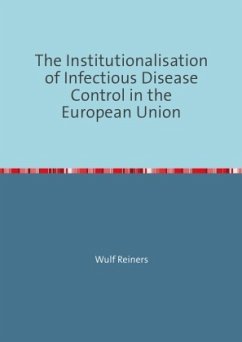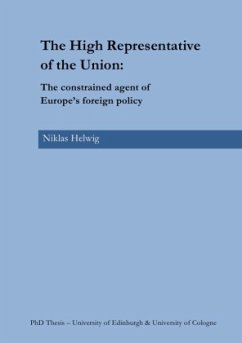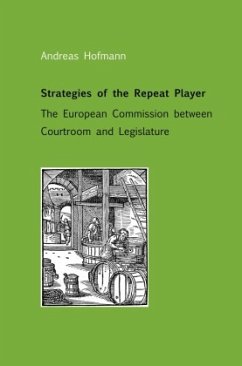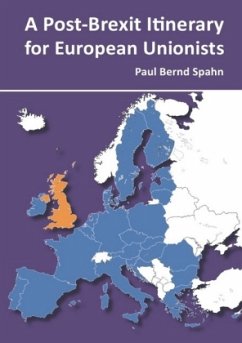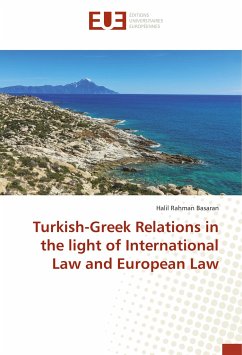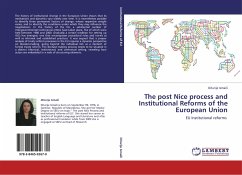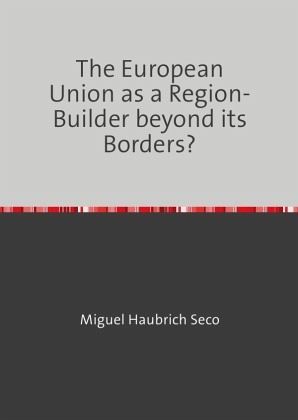
The European Union as a Region-Builder beyond its Borders?
An analysis of the EU's promotion of regional cooperation in the Western Balkans and Mercosur.
Versandkostenfrei!
Versandfertig in 6-10 Tagen
34,99 €
inkl. MwSt.

PAYBACK Punkte
0 °P sammeln!
The European Union's enduring belief in the virtues of integration as an instrument for peace and prosperity has nurtured policies that seek to promote cooperation and integration in almost every other region of the world. This thesis investigates whether, how and to what extent these policies have been successful in promoting regional cooperation beyond the EU's own borders. Among all regions towards which the EU pursues such a policy, the study selects two with diverse dependency on the EU for the empirical analysis: the Western Balkans and Mercosur.Using original data acquired in interviews...
The European Union's enduring belief in the virtues of integration as an instrument for peace and prosperity has nurtured policies that seek to promote cooperation and integration in almost every other region of the world. This thesis investigates whether, how and to what extent these policies have been successful in promoting regional cooperation beyond the EU's own borders. Among all regions towards which the EU pursues such a policy, the study selects two with diverse dependency on the EU for the empirical analysis: the Western Balkans and Mercosur.
Using original data acquired in interviews with policy-makers and through document analysis, the study traces whether and to what extent EU activities and influences played a role in seven cases of institutional change across the two regions. Building on the results of the case studies, a cross-case analysis examines the prevalence of different EU influences and the role of local conditions.
The study finds that EU influence on regional cooperation beyond its borders is strongest when it operates with a mixture of (technical) assistance and the proactive provision of lessons and experiences that are taken up by its partners. Its track record is generally positive in terms of influencing institutional change, but it often lacks political influence (or will) to shape the contexts in which such institutions operate. Quite surprisingly, EU impact does not necessarily depend on the degree of economic or political influence upon the region concerned. In fact, the EU was - on average - more effective in the Mercosur region than in the Western Balkans. Instead, the EU's success in promoting its preferred institutional change is most often contingent on a congruence between domestic incentives in the region, the EU's ability and/or willingness to accommodate these and its patience to rely on political windows of opportunity.
Using original data acquired in interviews with policy-makers and through document analysis, the study traces whether and to what extent EU activities and influences played a role in seven cases of institutional change across the two regions. Building on the results of the case studies, a cross-case analysis examines the prevalence of different EU influences and the role of local conditions.
The study finds that EU influence on regional cooperation beyond its borders is strongest when it operates with a mixture of (technical) assistance and the proactive provision of lessons and experiences that are taken up by its partners. Its track record is generally positive in terms of influencing institutional change, but it often lacks political influence (or will) to shape the contexts in which such institutions operate. Quite surprisingly, EU impact does not necessarily depend on the degree of economic or political influence upon the region concerned. In fact, the EU was - on average - more effective in the Mercosur region than in the Western Balkans. Instead, the EU's success in promoting its preferred institutional change is most often contingent on a congruence between domestic incentives in the region, the EU's ability and/or willingness to accommodate these and its patience to rely on political windows of opportunity.



